AZUL MICRODOSE CHOCOLATE
AZUL MICRODOSE CHOCOLATE
Tucked inside an ocean blue box with extravagantly serifed white lettering, an Azul Chocolates bar wouldn’t look out of place on the shelves of my local Erewhon in Los Angeles. The packaging touts that it’s vegan, gluten-free, pesticide-free, and made with 70% organic cacao that has a fruity, berry-forward aroma.
Unlike other chocolates enhanced with mushroom adaptogens that tease dramatic benefits, Azul’s effects won’t be difficult to perceive. And it will be a long time before they’re found on any grocery store shelves. The first giveaway is how hard it is to slip the candy out of the box; it’s childproof. That’s because it contains a lab-tested, high-quality psilocybin chocolate bar.
On weekend trips and at dinner parties, at workplaces and on TikTok, magic mushrooms are having a moment. The revival of research into psychedelics and its status as a technocrat accessory has fostered a new openness to psilocybin among the professional creative set in New York and Los Angeles, Austin and Miami. Michael Pollan’s How To Change Your Mind popularized psychedelic’s benefits to the New York Times subscription demographic. Branding studios have gotten involved.
This enthusiasm obscures a basic fact: Psilocybin is illegal almost everywhere in the US. It’s lurching toward different types of medical use legalization in Oregon and Colorado, but even there, it will be highly regulated. Selling magic mushrooms remains illegal everywhere in the US. Despite this, mushroom chocolates have made the leap from truffles homebrewed by a local dealer to branded, manufactured candy bars and bon boons.
AZUL CHOCOLATES
The aesthetics of most of these mushroom chocolates skew funkadelia and cartoonish, combinations of trippy tips ‘90s computer art and manic candy branding. One of the most common brands is PolkaDot, and it tends to come in nostalgic flavors like cookies and cream and “fruity pebbles,” though the term “brand” might be a stretch. There’s no trademark protection in illicit capitalism, so a Google search surfaces endless variations of URLs that claim to sell “Polka Dot,” while dispensaries and smoke shops in Los Angeles and New York sell both authentic and less legit versions openly; someone is selling purported my dose
David, of Azul, says his company set out to make a product whose branding emphasized its “good intentions” and child safety. (Because buying and selling psilocybin is illegal, “David” is a pseudonym.) He uses his own chocolates largely to microdose in everyday life or while snowboarding or playing tennis. “Personally, I have an issue with being present,” he says. Microdosing, he says, helps him resist that tendency. But “I definitely take my full dose of mushrooms a couple times a year.”
With a crew cut and a gray polo shirt, David doesn’t look like the groovy mushroom guru I’d envisioned. Previously, he was a white-collar professional. He says that he tripped on mushrooms as a teenager and found the experience to be special, and different from cannabis, but it was re-discovering their history as potential treatments for a wide variety of mental illnesses that opened his eyes to how important having a quality product—one that is responsibly grown, lab-tested, and consistent—could be.
AZUL MICRODOSE CHOCOLATE
$7.00
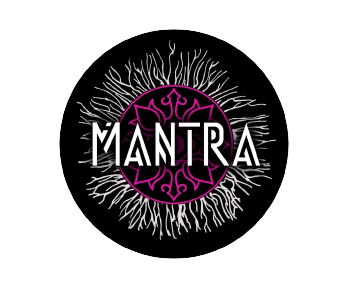
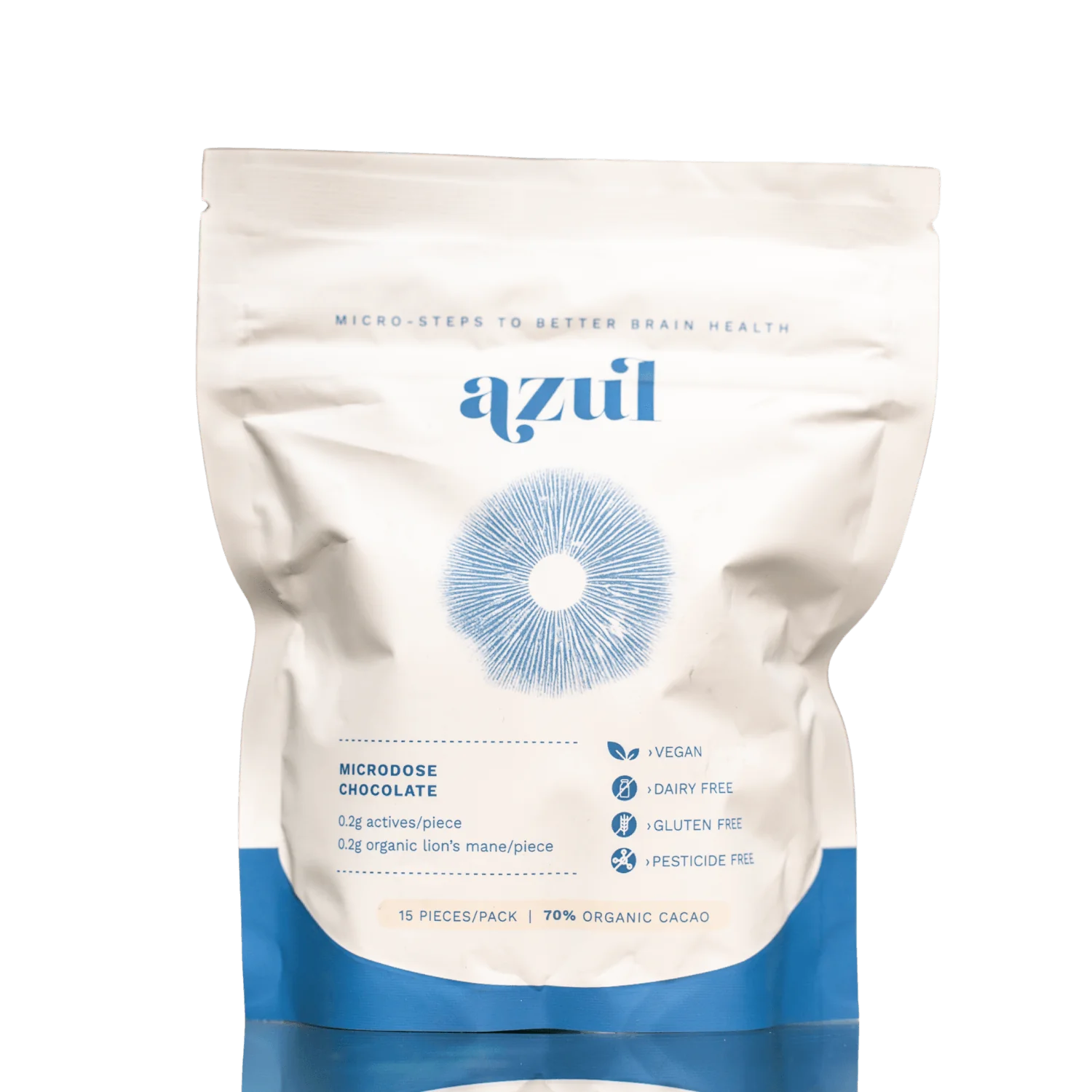
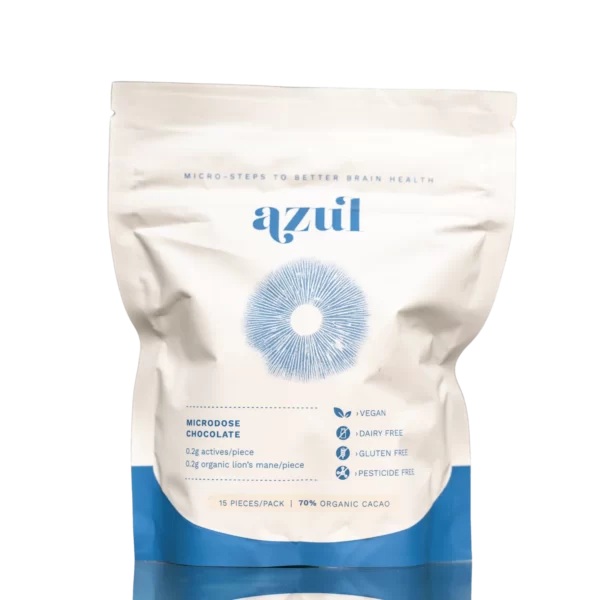
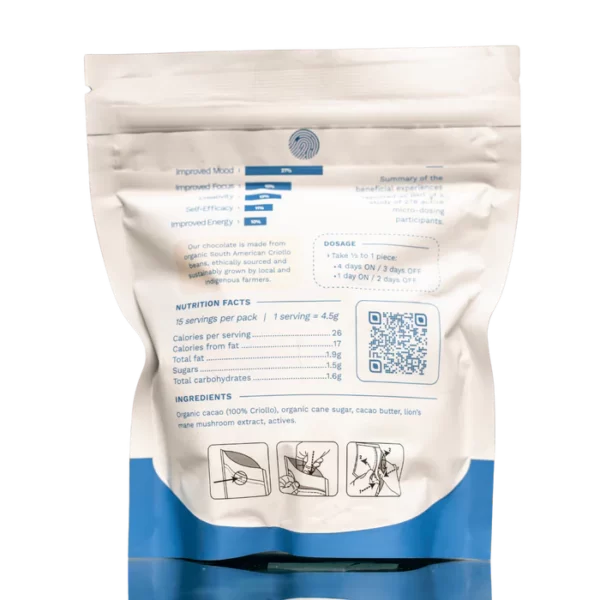
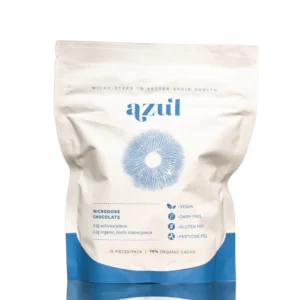
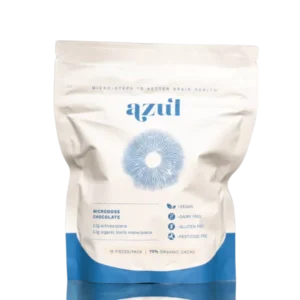
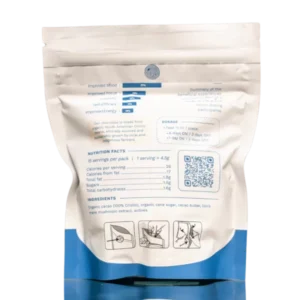
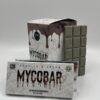
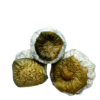
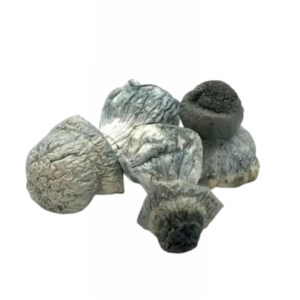
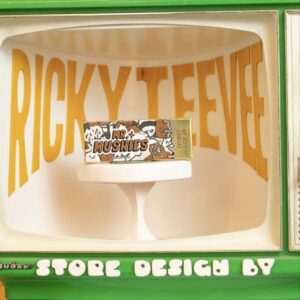
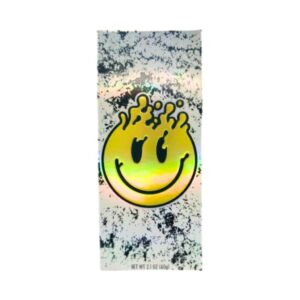
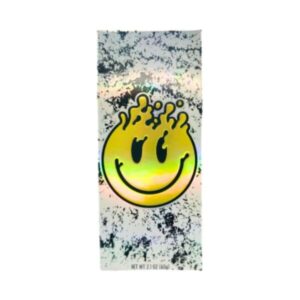
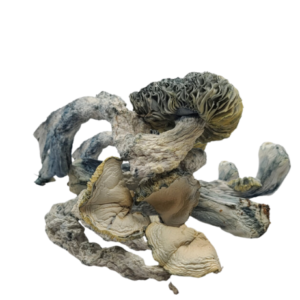
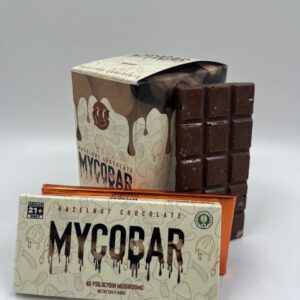
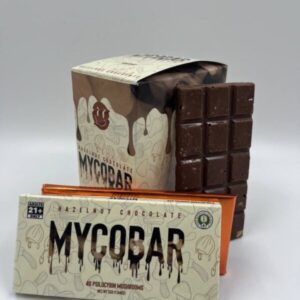
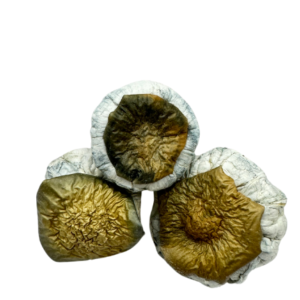
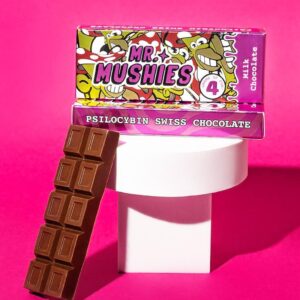
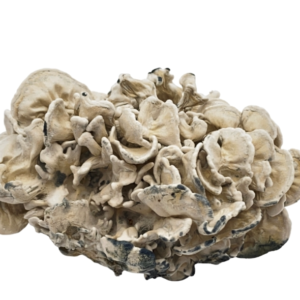
Reviews
There are no reviews yet.